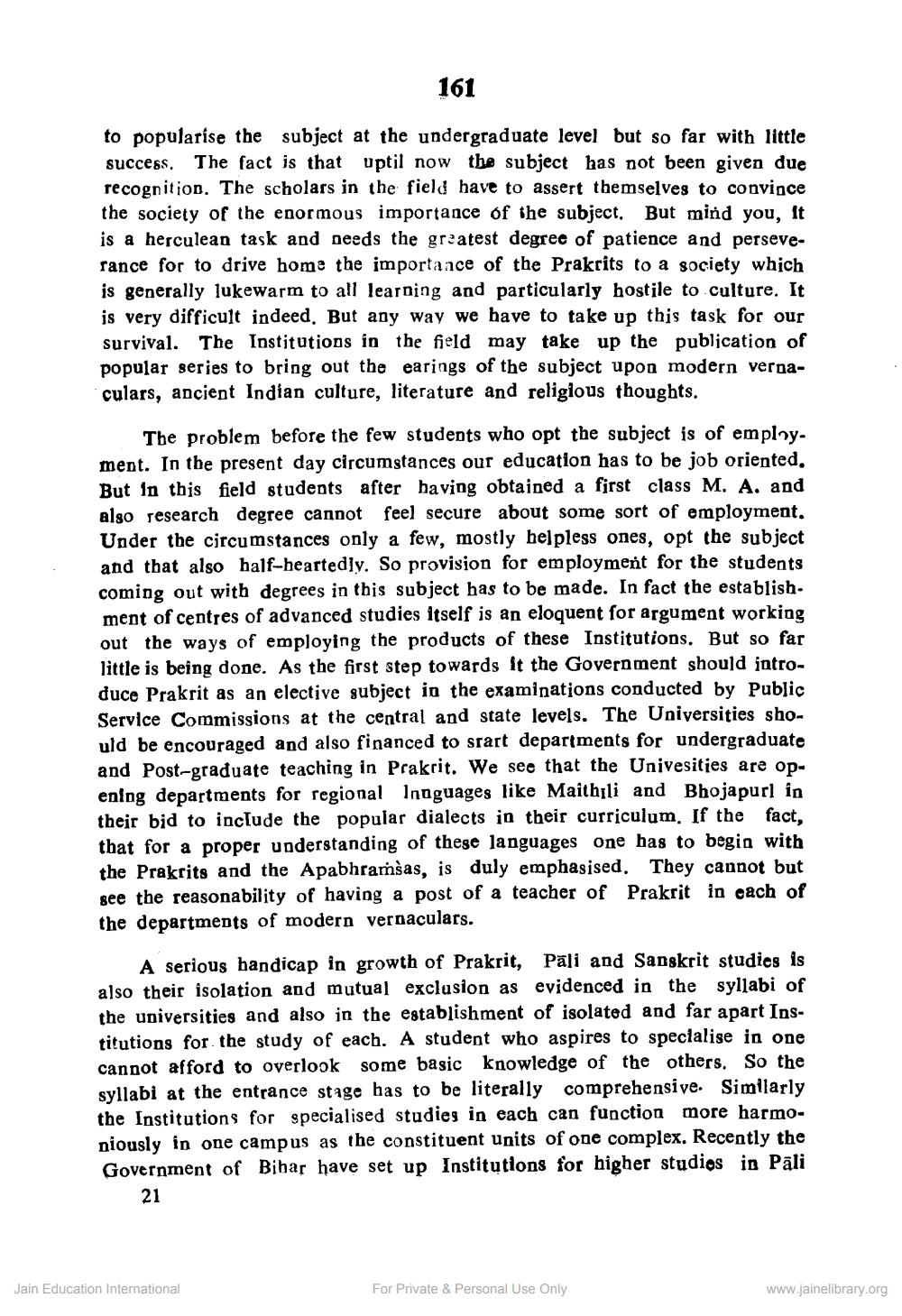________________
161
to popularise the subject at the undergraduate level but so far with little success. The fact is that uptil now the subject has not been given due recognition. The scholars in the field have to assert themselves to convince the society of the enormous importance of the subject. But mind you, It is a herculean task and needs the greatest degree of patience and perseverance for to drive home the importance of the Prakrits to a society which is generally lukewarm to all learning and particularly hostile to culture. It is very difficult indeed. But any way we have to take up this task for our survival. The Institutions in the field may take up the publication of popular series to bring out the earings of the subject upon modern vernaculars, ancient Indian culture, literature and religious thoughts.
The problem before the few students who opt the subject is of employ. ment. In the present day circumstances our education has to be job oriented. But in this field students after having obtained a first class M. A. and also research degree cannot feel secure about some sort of employment. Under the circumstances only a few, mostly helpless ones, opt the subject and that also half-heartedly. So provision for employment for the students coming out with degrees in this subject has to be made. In fact the establishment of centres of advanced studies itself is an eloquent for argument working out the ways of employing the products of these Institutions. But so far little is being done. As the first step towards it the Government should introduce Prakrit as an elective subject in the examinations conducted by Public Service Commissions at the central and state levels. The Universities should be encouraged and also financed to srart departments for undergraduate and Post-graduate teaching in Prakrit. We see that the Univesities are opening departments for regional Innguages like Maithili and Bhojapurl in their bid to include the popular dialects in their curriculum. If the fact, that for a proper understanding of these languages one has to begin with the Prakrits and the Apabhramšas, is duly emphasised. They cannot but see the reasonability of having a post of a teacher of Prakrit in each of the departments of modern vernaculars.
A serious handicap in growth of Prakrit, Pāli and Sanskrit studies is also their isolation and mutual exclusion as evidenced in the syllabi of the universities and also in the establishment of isolated and far apart Institutions for the study of each. A student who aspires to specialise in one cannot afford to overlook some basic knowledge of the others. So the syllabi at the entrance stage has to be literally comprehensive. Similarly the Institutions for specialised studies in each can function more harmoniously in one campus as the constituent units of one complex. Recently the Government of Bihar have set up Institutions for higher studies in Pāli
21
Jain Education International
For Private & Personal Use Only
www.jainelibrary.org




